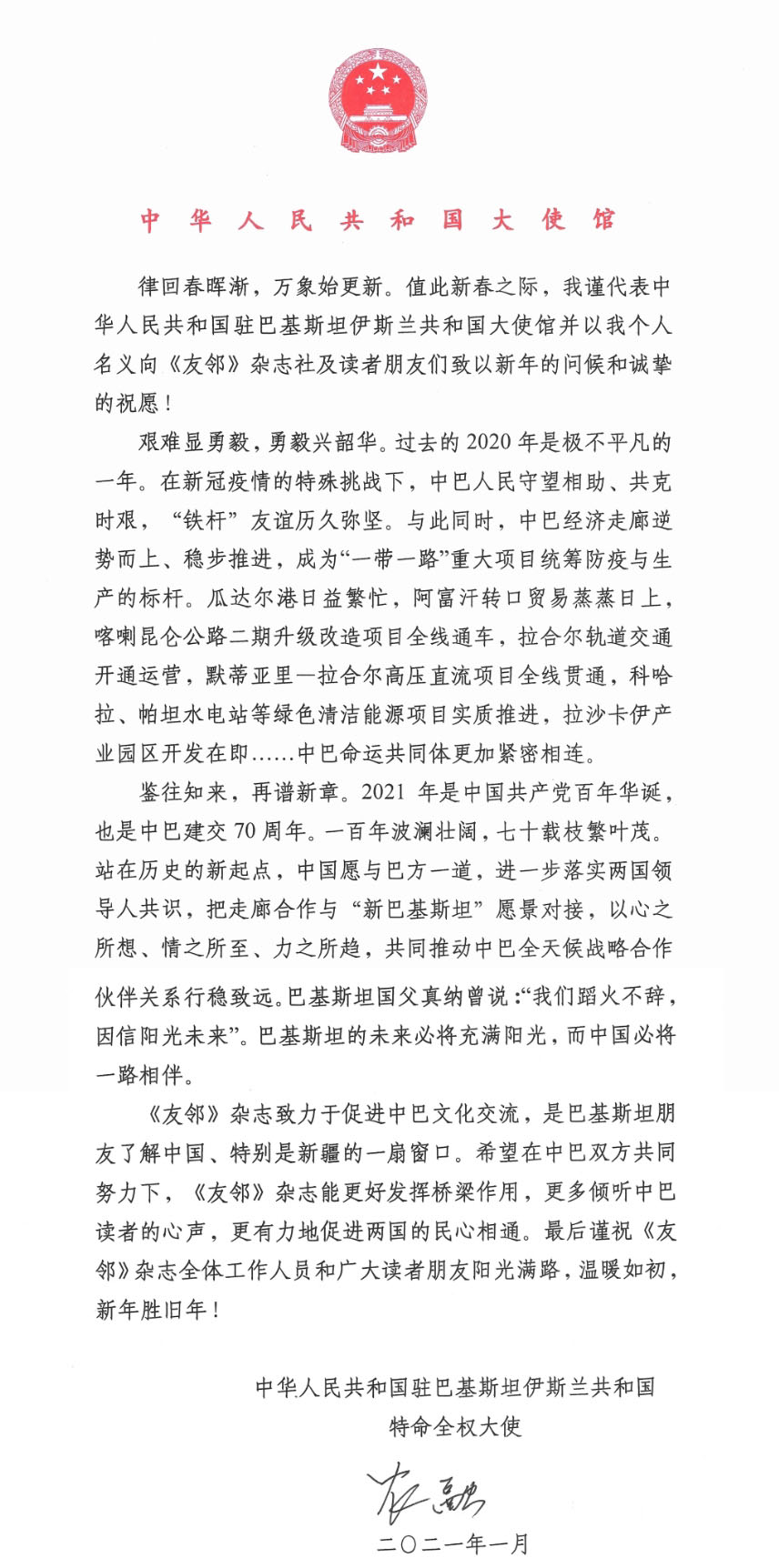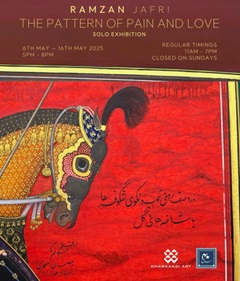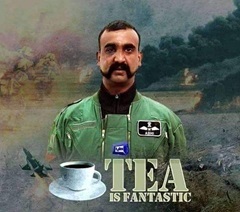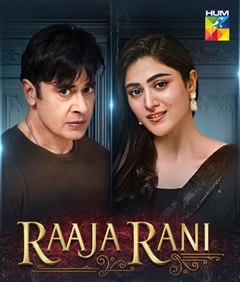Actress Samiya Mumtaz
作家: Nuzhat Saadia - 发表于: 2015年05月11日 | ENG (English)
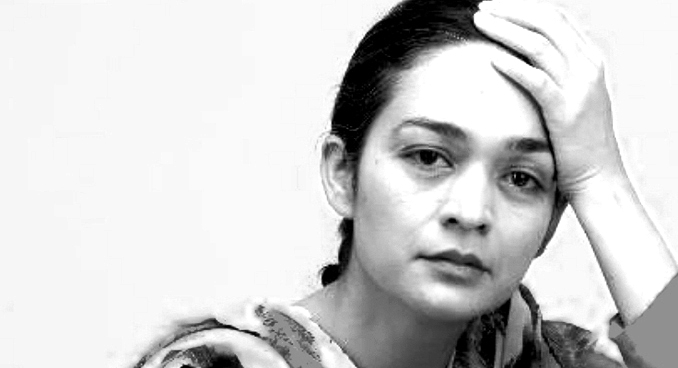
Samiya Mumtaz
Nuzhat Saadia Siddiqi in conversation with actor and activist Samiya Mumtaz.
Filmmaker Afia Nathaniel recently launched her groundbreaking film “Dukhtar” (literally Daughter) in the United Kingdom with great success. After a well-received cinema run in Pakistani theaters and at the South Asian International Film Festival (SAIFF) in the US, Dukhtar is receiving praise from viewers in Great Britain as well. Along with the widespread appreciation for its beautiful cinematography and its cinematic merit, the film has also started a dialogue on the taboo subject of child marriages and how Pakistani society still accepts this heinous practice as a part of our “culture”. The tribal custom of “Vani” or “Swara”, the practice of using child brides to settle blood feuds within warring tribes has long marred the lives of many, pushing thousands of girls from carefree childhood into forced adulthood in the matter of minutes. That this film challenges the narrative of hopelessness is something the film’s leading actor, Samiya Mumtaz, celebrates with stoic glee.
Samiya is an actor, classical dancer, farmer, entrepreneur and activist. As an actor, she has led many drama serials to the height of success. Formally trained to perform the Bharat Natyam dance, Samiya splits her time between her acting jobs and “being a farmer”, where the latter activity is something she prefers more than anything else. She formerly started and co-owned the organic food company Daali with her friend. She endearingly shuns the unnecessary attention other actors crave so much, and is dedicated to her organic farm and her activism, which, as it turns out, revolves around helping girls fight against being married at a young age. In a brief sit-down, Samiya recounts how she became a part of the film, what she thinks of the renaissance of cinema in Pakistan and her advocacy with the international human rights organization, Girls not Brides.
“I never sign any of my projects before reading the script first,” she says, brewing a cup of fresh green tea. “When Afia told me about the film she was planning to make and I saw the script, I knew it was a project I believed in and joined the production immediately.”
The film was shot in the beautiful landscapes of Gilgit-Baltistan, where the cast and the crew of the film spent close to forty days on a field shoot. Bonding between cast members and the production team was inevitable according to Samiya, because all believed in the project and its scope. “Every night after the shoot we played board games, badminton or cards. It was important for us to bond because off-screen chemistry dictates on-screen dynamics between the team. We all got lucky because there was hardly anyone who did not get along and have a good time.”
The most important bond that she forged was with Saleha Arif, the young actor who played the eponymous daughter in the film. Critics across the board have praised the realistic portrayal of the relationship between Samiya Allah Rakhi and Saleha’s Zainab. “I did a screen test and read my part with a few other young girls. As soon as Saleha walked in, both Afia and I agreed that she was the best fit for the role.”
Samiya is full of praise for the young actor and shares how being away from home and from her own daughter made her feel even closer to Saleha. “She is genuinely a good performer, and has such positive energy,” Samiya adds. “What you see on screen is a testament to how much we bonded off screen. I suppose that same closeness made us feel the importance of the issue at the heart of the film even more.”

(l-r) Mohib Mirza, Adnan Shah and Ajab Gul in 'Dukhtar'
The film takes Allah Rakhi and Zainab from their suffocating prison of a home in the mountains to the plains down south. In order to save Zainab from the same fate she suffered as a child bride, Allah Rakhi overcomes her own fear of her husband and the male members of her tribe to whisk away her daughter to safety. A helping hand from a kindly truck driver Sohail, played to perfection by Mohib Mirza, adds urgency to the story. “There are so many stories such as these in reality. We could feel the burden of truth weighing down upon us during the shoot,” Samiya says thoughtfully. “If the film starts a debate, on the status of girl children in our country, I don’t see how that could be a bad thing.”
According to the country factsheet for Pakistan printed in 2012 about the status of child marriages in the country, on average, almost one out of four girls will be married before their 18th birthday. About 24% of the women aged 20-24 were married/in union before age 18 by 2007. According to the same report, the prevalence of child marriages is second highest in Khyber Pakhtunkhwa at 29%. Samiya also addresses the criticism from some quarters which alleged the film reflected badly on tribal culture. She is of the view that pointing out a problem is not a wholesale condemnation of an entire community. “You see good people in the film as well as bad people, as there are in life, belonging to the same cultural and social background. It’s about the choices we make that matters.” She is quick to add that her activism on this front does not make her bitter or blind to on-ground realities. “It is a sensitive issue but I see absolutely no harm in talking about it. If we can’t even talk about, how will we be able to solve it?”
Despite her beliefs and role overlapping in Dukhtar, Samiya doesn’t believe films should always be leaden with grave messages. An example she gives of her husband’s film venture, “Zinda Bhaag”, in which she had a blink-and-you’ll-miss-her appearance. Overall Samiya finds film is a beautiful medium to tell great stories and is hopeful about cinema in Pakistan. “I’m excited about Jami’s upcoming film Moor (in which she has a leading role). We shot it in Balochistan and it is unlike any other film we have made in Pakistan before.” To her, just exploring the province, which is shrouded in mystery for millions of Pakistanis, while shooting in far flung locations was an adventure in itself. “I hope people have as much fun watching that one as we did shooting it,” she says, sharing homemade traditional biscuits. “Isn’t that the whole point of good cinema?”

Still from film 'Moor'
Nuzhat Saadia Siddiqi is a freelance journalist based in Lahore. She tweets @guldaar.






